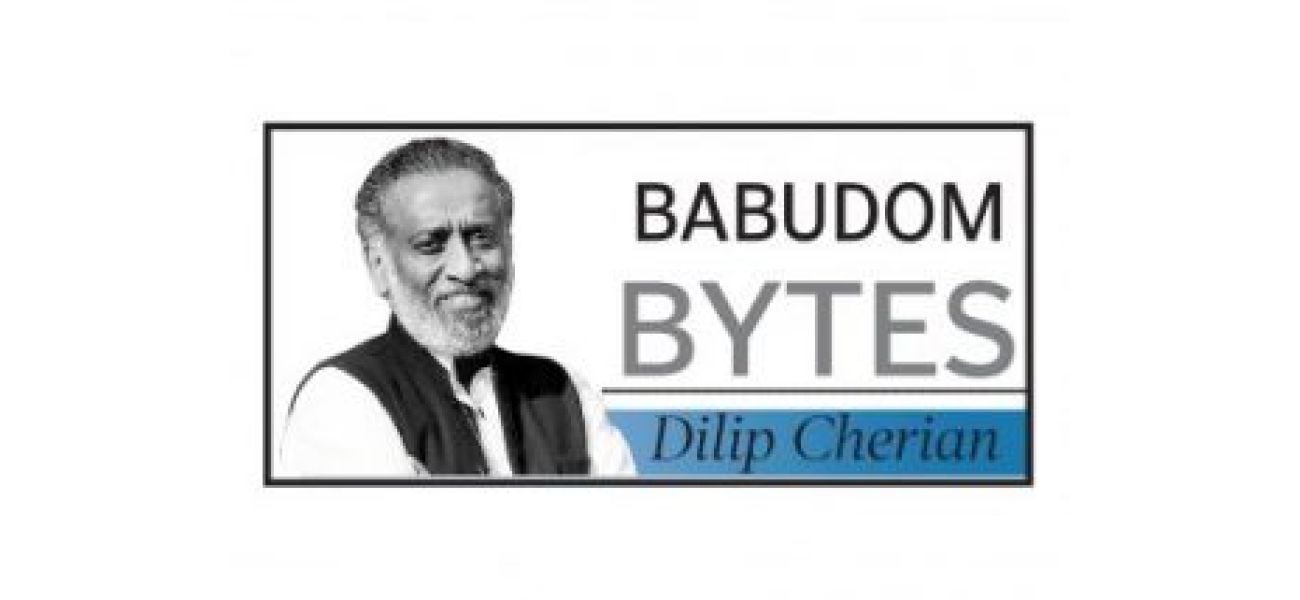A guide for managing and maintaining an organization, including policies and procedures for decision-making, roles and responsibilities, and communication.
BJP-led Delhi government is starting off deliberately, appointing senior officials as advisers to oversee decision-making and keep ministers on track.
March 22nd 2025.

The Rekha Gupta-led Delhi government is off to a planned start, with the BJP leadership taking no chances when it comes to governance. To ensure smooth decision-making, six senior officials have been appointed as advisers or OSDs. They will closely monitor the progress of the government and ensure that the ministers stay on track. Additionally, each of the six cabinet ministers will have a senior DANICS officer serving as their secretary.
This clearly shows that the new administration means business. After winning the election, the BJP is determined to fulfill its promises, which is a challenging task in a city known for its long history of political rivalry. The Chief Minister’s Office has also put together a well-organized team, with a secretary and two special secretaries to assist them in ensuring efficient governance.
In contrast, the previous Kejriwal-led government took a different approach by assigning party members to various ministerial roles. While this may have provided political control, it often resulted in an overcrowded secretariat with unclear roles and responsibilities. This is in stark contrast to the governance model of former Chief Minister Sheila Dikshit, which worked well with the bureaucracy and did not require additional political appointees.
Gupta's new system seems to be an attempt to bring structure and discipline, but it raises the question of whether this is a necessary administrative step or simply a way to exert more political control.
Moving on to the ongoing arms license scam in Jammu and Kashmir, the Ministry of Home Affairs is trying to locate missing paperwork. They have requested the Chief Secretary to resubmit prosecution proposals against three IAS officers, Yasha Mudgal, Shahid Iqbal Choudhary, and Niraj Kumar, as certain documents are still unaccounted for.
This isn't the first reminder, as the MHA had previously instructed the J&K administration to expedite the CBI's prosecution requests for two more IAS officers, M Raju and Prasanna Ramaswamy G. However, despite recommendations for prosecution sanctions against five officers in 2024, the MHA is still awaiting a response from the J&K government.
Meanwhile, the General Administration Department is gathering details on IAS officer P K Pole, and there is ongoing debate over jurisdiction in the case of Prasanna Ramaswamy G, as the alleged violations occurred in Ladakh. The examination of cases against three more officers, Jitendra Kumar Singh, Ramesh Kumar, and once again, Prasanna Ramaswamy G, is also pending.
One cannot help but wonder if this is another case of bureaucratic lethargy, where the system moves at a slow pace until the matter fades away. Or is there a reluctance to take decisive action against senior officers? This saga is starting to resemble more of an administrative merry-go-round than an anti-corruption crackdown.
Now, let's talk about the curious case of Amit Lodha. A former police officer turned best-selling author, Lodha rose to fame with his book Bihar Diaries, which was later adapted into a popular Netflix series, Khakee: The Bihar Chapter. However, his real-life controversies soon caught up with him, with a formal complaint, allegations of disproportionate assets, and an Enforcement Directorate investigation.
Despite all this, the Bihar government has now promoted Lodha to the position of Additional Director General. Many questions arise from this move. Is it an admission that the accusations against him were baseless? Or is it a sign of changing political tides, where his larger-than-life persona, previously seen as a liability, is now welcomed?
There were speculations that his popularity in films had angered the political establishment in Bihar, making a comeback seem unlikely. But they were proven wrong. However, the ongoing ED investigation and vigilance case cannot be ignored. The ED's case is based on the same grounds as the DA case filed by the state's vigilance department in 2022.
In a system that prides itself on integrity, shouldn't these charges hold weight? Or do bureaucrats operate on their own version of realpolitik, where decisions are influenced by internal equations, public opinion, and power rather than following the law?
Lodha's promotion serves as a reminder that, ultimately, it's not just about crime and punishment but also about timing and political calculations in a world where headlines change faster than policies.
This clearly shows that the new administration means business. After winning the election, the BJP is determined to fulfill its promises, which is a challenging task in a city known for its long history of political rivalry. The Chief Minister’s Office has also put together a well-organized team, with a secretary and two special secretaries to assist them in ensuring efficient governance.
In contrast, the previous Kejriwal-led government took a different approach by assigning party members to various ministerial roles. While this may have provided political control, it often resulted in an overcrowded secretariat with unclear roles and responsibilities. This is in stark contrast to the governance model of former Chief Minister Sheila Dikshit, which worked well with the bureaucracy and did not require additional political appointees.
Gupta's new system seems to be an attempt to bring structure and discipline, but it raises the question of whether this is a necessary administrative step or simply a way to exert more political control.
Moving on to the ongoing arms license scam in Jammu and Kashmir, the Ministry of Home Affairs is trying to locate missing paperwork. They have requested the Chief Secretary to resubmit prosecution proposals against three IAS officers, Yasha Mudgal, Shahid Iqbal Choudhary, and Niraj Kumar, as certain documents are still unaccounted for.
This isn't the first reminder, as the MHA had previously instructed the J&K administration to expedite the CBI's prosecution requests for two more IAS officers, M Raju and Prasanna Ramaswamy G. However, despite recommendations for prosecution sanctions against five officers in 2024, the MHA is still awaiting a response from the J&K government.
Meanwhile, the General Administration Department is gathering details on IAS officer P K Pole, and there is ongoing debate over jurisdiction in the case of Prasanna Ramaswamy G, as the alleged violations occurred in Ladakh. The examination of cases against three more officers, Jitendra Kumar Singh, Ramesh Kumar, and once again, Prasanna Ramaswamy G, is also pending.
One cannot help but wonder if this is another case of bureaucratic lethargy, where the system moves at a slow pace until the matter fades away. Or is there a reluctance to take decisive action against senior officers? This saga is starting to resemble more of an administrative merry-go-round than an anti-corruption crackdown.
Now, let's talk about the curious case of Amit Lodha. A former police officer turned best-selling author, Lodha rose to fame with his book Bihar Diaries, which was later adapted into a popular Netflix series, Khakee: The Bihar Chapter. However, his real-life controversies soon caught up with him, with a formal complaint, allegations of disproportionate assets, and an Enforcement Directorate investigation.
Despite all this, the Bihar government has now promoted Lodha to the position of Additional Director General. Many questions arise from this move. Is it an admission that the accusations against him were baseless? Or is it a sign of changing political tides, where his larger-than-life persona, previously seen as a liability, is now welcomed?
There were speculations that his popularity in films had angered the political establishment in Bihar, making a comeback seem unlikely. But they were proven wrong. However, the ongoing ED investigation and vigilance case cannot be ignored. The ED's case is based on the same grounds as the DA case filed by the state's vigilance department in 2022.
In a system that prides itself on integrity, shouldn't these charges hold weight? Or do bureaucrats operate on their own version of realpolitik, where decisions are influenced by internal equations, public opinion, and power rather than following the law?
Lodha's promotion serves as a reminder that, ultimately, it's not just about crime and punishment but also about timing and political calculations in a world where headlines change faster than policies.
[This article has been trending online recently and has been generated with AI. Your feed is customized.]
[Generative AI is experimental.]
0
0
Submit Comment





